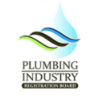Are you looking to empower yourself when it comes to caring for your property? In this article, we help you understand more about your plumbing system and what leak detection entails. Demystifying leak detection is crucial for homeowners who want to understand why leaks happen and what to do when they occur. While this isn’t a comprehensive consumer manual, it is a great way to get you started on understanding some of the most popular terms and jargon used by expert plumbers. Of course, for anything you still don’t understand, we will be happy to help you! Here are nine of the most popular terms to get acquainted with regarding leaky pipes or leak detection.
- Leak Detection
Leak detection is merely the process of identifying any leaks located within your plumbing system. Often, these leaks go unnoticed because of the nature of plumbing behind walls, floorboards, and ceilings. Once a homeowner suspects a leak, issues such as a rising water bill, strange pipe sounds, low water pressure, or dampness and staining on the walls would have already started occurring. Our professionals not only locate the leak but isolate it and take swift action to fix the cause of the issue.
- Water Pressure
Water pressure is the force of the water flowing through your pipes, and it’s vital that you understand what typical water pressure should look like in your system. Excessive pressure could lead to burst pipes and leaks, while low pressure indicates that you may be losing water through a leak somewhere.
- Water Meter
Residential water meters are devices that are installed to measure water consumption. In most South African homes, water meters are located outside the property on the pavement. Property owners can check their meters to see how much water has passed through their devices every month, which gives them an idea of any potential peaks that indicate an unusual increase in water use.
- Hydrogen and Nitrogen Gas Injections
Hydrogen and nitrogen are used as tracer gases which get injected into pipes. Because hydrogen is a small, light molecule, the gas will quickly find its way to cracks and faulty seals. A detector tool then finds where this gas concentrates, indicating the leak.
- Thermal Cameras
Thermal cameras use infrared imaging to pick up any temperature variations along your plumbing. This allows professionals to find hidden leaks behind walls or under floors by representing any temperature differences caused by water intrusion into the surrounding areas.
- Ultrasonic Water Leak Sensors and Ground Microphones
An ultrasonic leak detector uses ultrasonic technology to detect the sound frequencies produced by water that escapes a leak. Similarly, ground microphones amplify the sound of leaks underground, and a trained professional can pick up where the source of the leak is.
- Electronic Moisture Meter
An electronic moisture meter is a handheld device that allows a plumber to read the moisture content within your property’s infrastructure, such as walls, roofing, flooring, and more. An increase in moisture levels usually indicates a leak somewhere.
- Fluorescent Dye
When finding leaks within pools, a great way to spot the problem is by using fluorescent dye. The dye makes it easier to trace the flow of water into any cracks.
- Pipe Corrosion
When pipes are exposed to corrosive elements, their material begins to break down, which can lead to leaks and bursts. If you see any signs of corrosion, such as water that looks discoloured, calling in an expert is essential. As your leak detection experts, we at Alpha Plumbing provide you with same-day services and guarantee outstanding results. If you would like to learn more about leak detection or want to book our services, call on us today.







